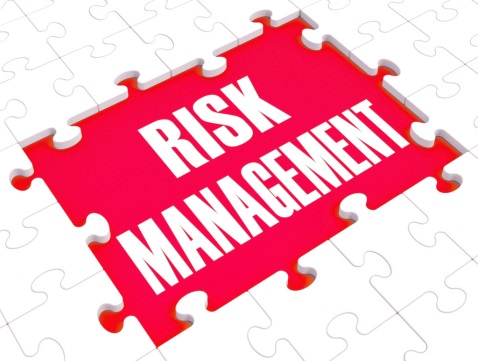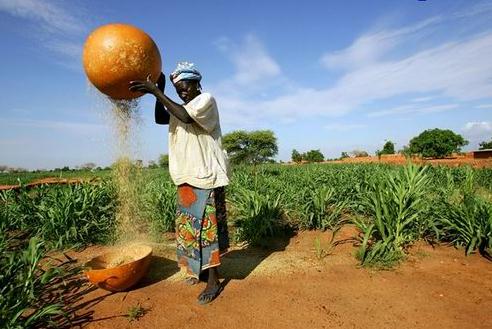In 2016, with the surge of overseas
investment, merger and acquisition of China's enterprises, the risks of
investment have boomed as well.

Various negative news about overseas
investment have constantly came out from global market: on 6th June,
Russian media reported that Russia called the aiding-Mongolia-project of 'Belt
and Road Initiative' quit; on 9th June, according to Wall Street
Journal of the US, the West Coast Express, a private railway station of the US,
terminated the cooperation on the first high speed rail project with China; on
10th June, according to Die Zeit, German "Time', Germany
government has considered to tighten up the foreign investment laws and
regulations to protect its own enterprises from purchasing by China's
investors.
China's intensive overseas investment has
triggered widespread worries around the world, and as a result, they began to
adjust the inspection and regulation on the foreign investment, which is just
as the same as that of Japan in 1980s, and China's enterprises have apparently
not fully prepared for the situation. Those newly released signals warns China's
enterprises that has already gone abroad to take a more rational attitude on
the overseas investment, not only concern over the traditional risks like
financing, market environment, labor-capital relationship, and political
stability, but pay more attention to the political environment, national
conditions, communities, traditions and customs into consideration in
decision-making.
Three Non-negligible Social
Responsibility Risks
As a fundamental industry, agriculture has
long been underestimated among the overseas investments, but actually, the
industry is embracing the critical period.
According to the Ministry of Commerce, from
2004 to 2014, outward foreign direct investment (OFDI) among the fields of
farming, forestry, animal husbandry, side-line production and fishery of China
increased from USD834 million to USD9.692 million, up 24.98% YoY; at the same
time, the foreign investment flows of those fields has increased from USD289
million to USD2.035 billion; among which the growth rate, with the high speed
of more than 50% in some years, has accelerated since 2009. From the perspective
of overseas merger and acquisition, this trend has also been the fact.
According to the announced statistics of the sum of merger and acquisition, the
investment of agriculture & food industry ranked No. 3 with the sum of
USD48.981 billion in terms of China's overseas merger and acquisition business in
2015, accounting for 21.59% of the total sum that has been made public.
Among the overseas investment risks of
China's agricultural industry, it is wide recognized by the enterprises that
the political stability is the risk that is most likely to encounter with,
followed by the risks of financing, market environment, and labor-capital
relationship. What's more, the relatively less important risks include
environmental protection standard, law and regulations, market competitiveness,
sustainability of the means of production and resources, and public opinions.
From what have been discussed above, we can see that the enterprises have paid
more attention on the traditional risks when they conducting the agricultural
overseas investment than that of the risks arisen from the social
responsibilities. However, from the investment practices among the recent
years, the land risks, environmental risks and social risks, which consist of
the three major social responsibility risks of China's overseas investment on
agriculture sector, have emerged one after another.

Among all those three risks, the land risk
brings about the most direct impact on the investment. In 2015, a
RMB17-billion-investment-project for crop planting conducted by Chongqing Grain
Group in Brazil has been halted due to the lack of approval and environmental
permit issued by the local government. In 2011, Heilongjiang Beidahuang Agriculture
Co., Ltd. has also triggered the anxieties of the local environmentalists owing
to the land utilization agreement in Argentina, and then the local government
immediately taken legislation measures to place restrictions on foreigners or
foreign entities for owning the land in Argentina. Due to the sensibility of
land issues, which is inevitable sharing various links with political issues,
the host country intended to conduct political interference to restrict foreign
enterprises from carrying out activities of agricultural investment.
Additionally, with the problems of the imperfections of the dispute settlement
mechanism and the opacity of land property right, China's enterprises have
faced with various troubles in overseas investing.
When it comes to the assessment on the land
risk that is most closely related to the management of agricultural investment,
many enterprises have just focused on the legal dimension, for example, the
ownership of the land from the perspective of law and the settlement mechanism
and compensation mechanism for solving the land disputes, while have paid
little attention to the community human rights of the host country and the
customary ownership of the land that closely related to the aboriginal rights.
Many oversea project managers of China's enterprises believed that "we have
already signed a contract with the government, so it is government's business
for removing and relocating, dealing with the change in ownership of land
property, and coping with the demonstration and protest.'
Of course there are cases that have
successfully resolved the land risks and embraced win-win cooperation.
In 2012, Pengxin Group Co.,Ltd. started its project of purchasing 16
large-scaled dairy farms with the total area of about 8,000 hectares in New
Zealand. After the purchasing project had been approved by the government of
New Zealand, the High Court of New Zealand ordered the New Zealand government
to reconsider its decision as the economic benefit that derived from the
business for New Zealand was substantially exaggerated. And the main reason for
the issue is that the land involved in the purchasing project linked with the
benefit of Maori.
Later on, Pengxin Group promptly negotiated
with the Maori and employed experienced dairy farmers from both China and New
Zealand into their team to win the Maori's trust. Pengxin Group finally bought
up the 16 farms on November 2012 after breaking through all the challenges
arisen from the legal and political aspects in nearly two years. As a result,
the farms would be operated as a joint venture by the Pengxin Group and a New
Zealand enterprise. The group decided to cooperate with Miraka, the only Maori
holding dairy company in New Zealand, who would supply the raw milk to the
Group for producing liquid homoiothermy milk. For the Pengxin Group, the key to
solve the land risks is to actively communicate with aborigines and try to
involve them into the purchasing project, and thus create higher economic and
social benefit of the purchase for the original inhabitants.
The second social responsibility risk faced
by China's agricultural overseas investment is environmental risk, which means
the investment locations may suffer the environmental pollution due to
relatively weak natural environment conditions of its own and the foreign
agricultural investment. The environmental risks not only include the issues
related to the conditions of zoology and nature, but also the laws and
regulations concerns the environment, the attitude of the local community and
organizations, and situation of the information disclosure. If an enterprise
pays no attention to its environmental performance abroad, those factors above
may pose a threat to the operation of the enterprise, and some of which would
further developed into social risks and thus impede the enterprise from gaining
local social license. Some Chinese enterprises began to cognize the protection
over the biological diversity and the pressures exerted by the local
communities and NGO, but have still not taken the local environmental bearing
capacity, the environmental information disclosure, and the local environmental
protection standard seriously enough.
The last social responsibility risk is
social risk, which is also the most likely one to be ignored. Generally, China's
enterprises always regard the traditional risks like the corruption issues of
the host country and the government-labor-union relationship, but laid little
stress on the cross-culture integration, communication with the local people,
the projects involved by the local or international NGO, and the transparency
of the information of project operation, which may have negative effects on
their business.
China's enterprises do not take the
information disclosure, which would especially increase the social risks.
Occasionally, there are some elementary information about the project of
overseas investment interspersed among Chinese report, few of which would
mention social issues and enterprise systems group (ESG). Take Sino-Agriculture
Group as an example, in the part of its overseas investment in the Social
Responsibility Report of Sino-Agriculture, it only mentioned that "in abroad,
Sino-Agriculture purchased Sino-Agriculture Mineral Resources Exploration Ltd,
with the mining area of 237 square kilometers in Laos, leopoldite reserves of 500
million tonnes, and long-term goal of annual production of potash fertilizer of
3 million tonnes. In 2011, the construction of the 100 thousand tonnes
verifying unit in Laos has completed, and the RMB3.5 billion project of
million-tons-potash-fertilizer-production, has already been put into effect,
had officially been approved by National Development and Reform Commission of
People's Republic of China.' Nothing about the detailed information of ESG was
mentioned in the report.
*The article is edited and translated by
CCM. The original article comes from Morning Whistle.
About CCM:
CCM is the leading market intelligence provider for China's agriculture, chemicals, food & ingredients and life science markets. Founded in 2001, CCM offers a range of data and content solutions, from price and trade data to industry newsletters and customized market research reports. Our clients include Monsanto, DuPont, Shell, Bayer, and Syngenta. CCM is a brand of Kcomber Inc.
For more information about CCM, please visit www.cnchemicals.com or get in touch with us directly by emailing econtact@cnchemicals.com or calling +86-20-37616606.